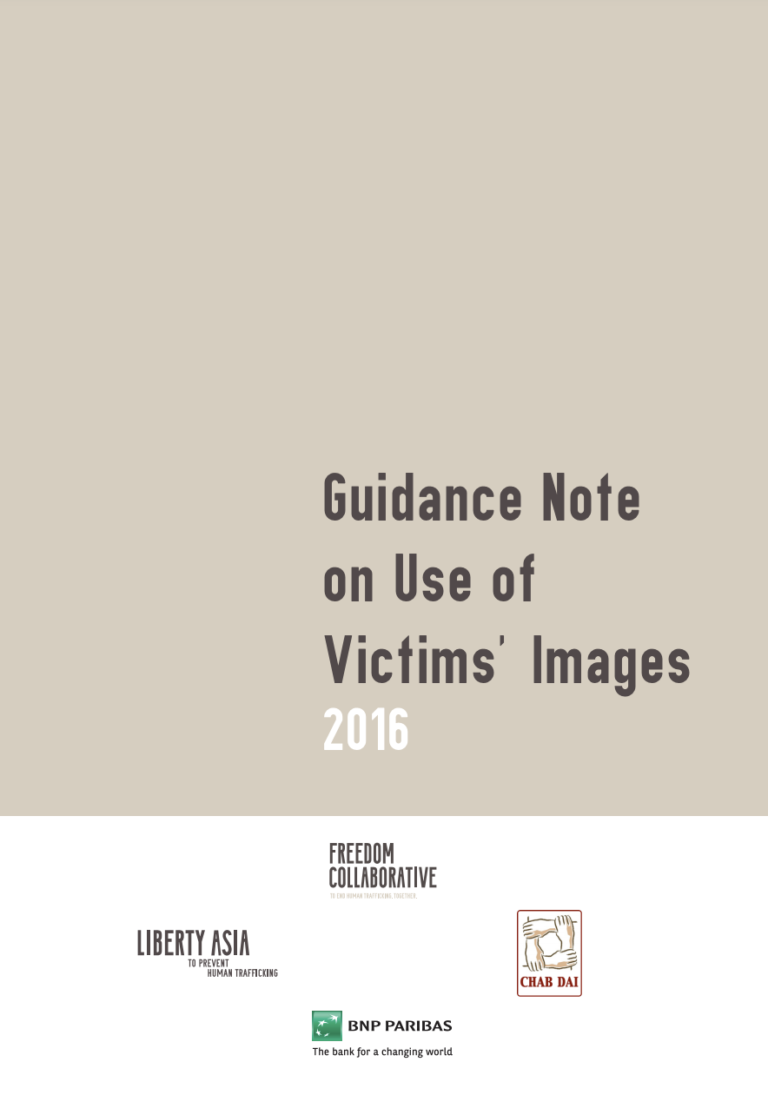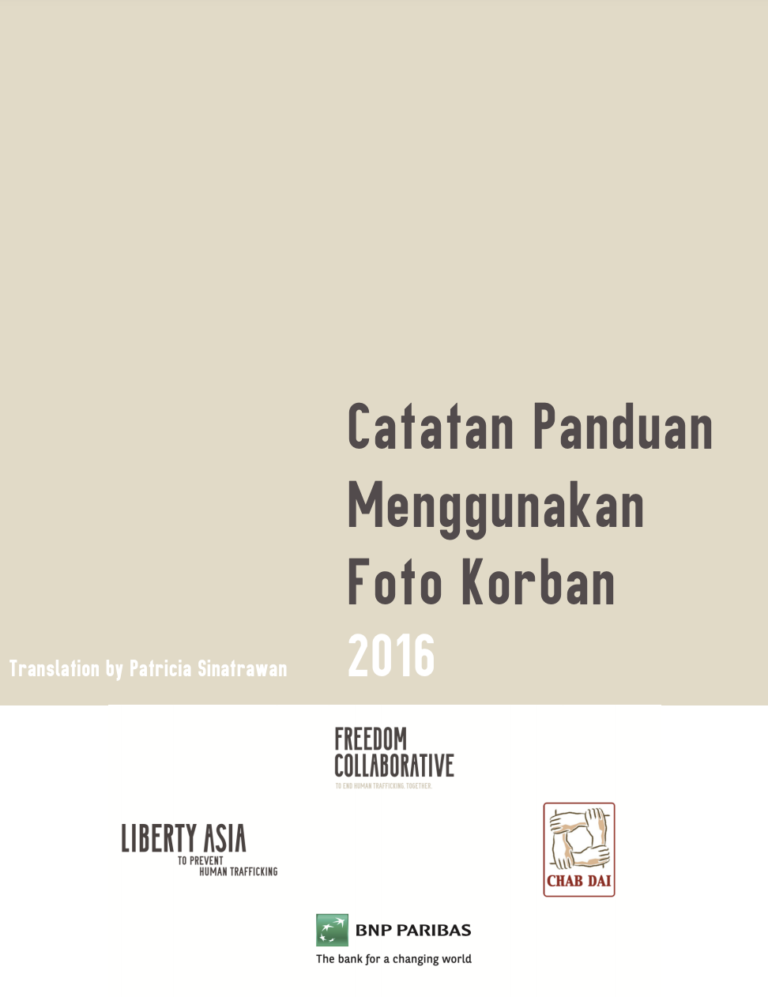This Guidance Note is provided by Freedom Collaborative to NGOs across the Asia region as a suggested statement of best practice and guidance in relation to obtaining and using images of victims of human trafficking, slavery and forced labour.
The voices and experiences of victims remain central to the counter-trafficking movement, but must always be informed by key principles such as informed consent and respect for individual autonomy and rights.
The document should be consulted by NGOs whenever they are obtaining images of people for use in their publications or other media. Consent should always be obtained prior to the use of any image of a person in accordance with the guidance set out in this document.
This document is also available in Bahasa Indonesia.


